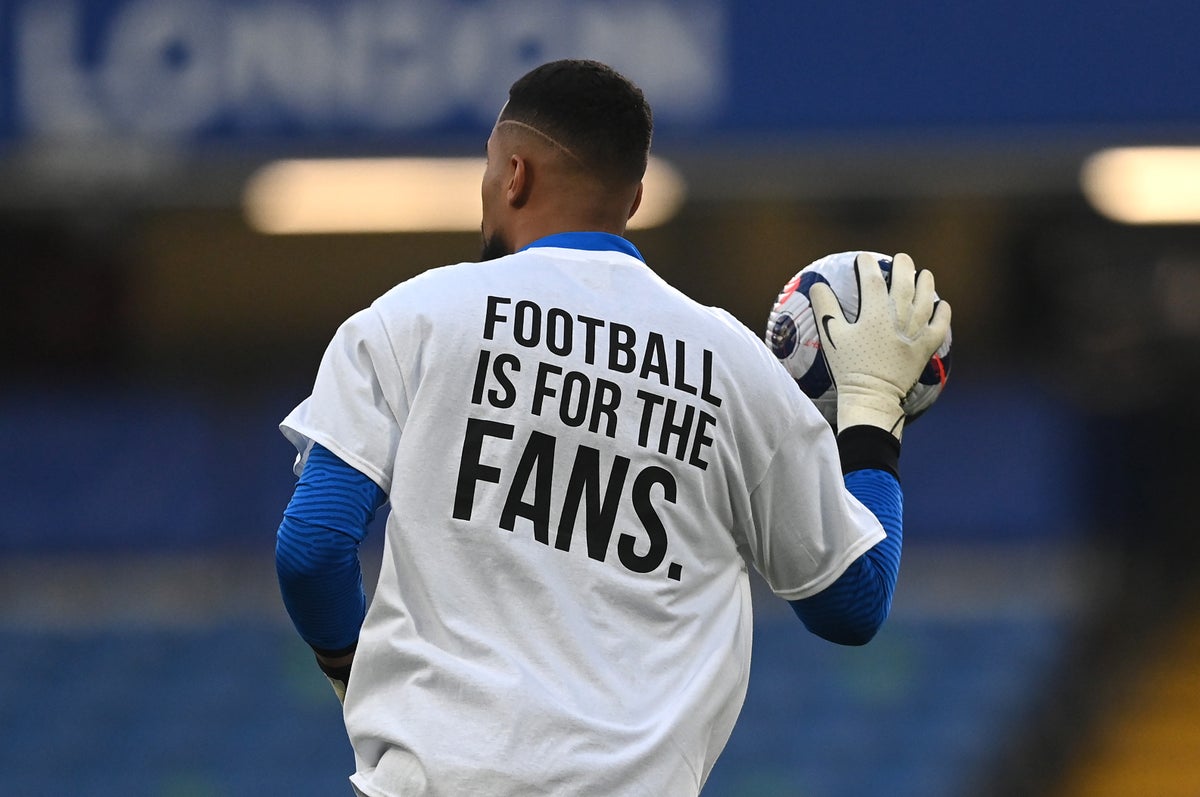
Premier League clubs are prepared to bring up the failed European Super League plot at Tuesday’s crucial shareholders’ meeting as they look to put pressure on the so-called “big six” sides to contribute a greater share to the £130m rescue package for the wider pyramid.
Six Premier League clubs - Manchester United, Liverpool, Arsenal, Tottenham Hotspur, Chelsea and Manchester City - formed part of the breakaway European Super League plans in April 2021, which collapsed spectacularly within days after a fan revolt.
The so-called “other 14” feel the current model for the “New Deal for football”, which proposes a new financial distribution model between the Premier League and EFL, will see them paying a proportion of their revenue that is felt much more by those with lower incomes.
There is an increasingly emotive will to renegotiate this at Tuesday’s meeting, as the 20 Premier League members attempt to vote through a package that has been long awaited in the wider game.
That would potentially include a push for a transfer levy. The prospect of the future independent regulator imposing such terms on the competition without any negotiation is one of many factors sharpening the tension, along with a general sense of shock at how punitive the 10-point deduction for profit and sustainability breaches was for Everton.
It has temporarily reshaped discussion around divisions that have not been seen since the European Super League plans first surfaced, effectively splitting the old “big six” and the rest.
That wealthy group had previously worked as a bloc to try and influence economic issues like revenue-sharing, but it was fractured after the failure of the European Super League.
Somewhat ironically given the Everton decision, it is the slow nature of the Manchester City case that realigned the game. The vast majority of the league have pushed for a resolution since the February 2023 announcement of the club’s 115 charges for allegedly breaching financial regulations.
Everton have been docked 10 points over a breach of the Premier League’s financial rules— (PA Archive)
With emotions high at the time, it looked like it could evolve into a split between state-owned clubs and the other 18, as there has been fury about the manner of the Saudi Arabian takeover of Newcastle United in 2021.
Another vote set to take place on Tuesday is whether to fast-track a ban on loans between associated clubs ahead of the January transfer window.
This could prevent Ruben Neves being sent from Al Hilal to injury-hit Newcastle, since both clubs are primarily owned by Saudi Arabia’s Public Investment Fund, amid questions of sporting integrity.
The discussions on the “New Deal” will temporarily split clubs along old lines. In order to leverage their position, executives at the “other 14” are prepared to remind the big six how forgiving the Premier League after the failed European Super League plans.
The thinking at the time was to punish individuals responsible rather than wider clubs, even though there was an opening to do more to economically reshape the competition.
The fact there is also an investigation going on into Chelsea, to go with that involving City, only strengthens the sense of feeling. City deny any wrongdoing.
One argument will be that the current model appears to be unfairly onerous on the less wealthy clubs, in what is the biggest finance-based decision since the European Super League.







